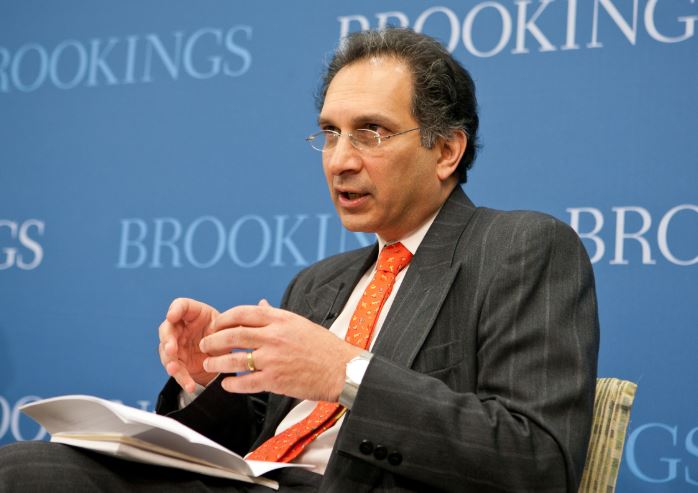Brookings Institute, the leading think tank of United States has said that global institutions have underestimated India’s achievements in reducing extreme poverty. In a report titled as ‘Rethinking global poverty reduction in 2019’, the institution emphasized on India’s contribution in reducing global poverty. The report was written by Kristofer Hamel and Martin Hofer of World Data Lab and Homi Kharas of Brookings Institution. “The soon-to-be-largest country in the world has been reducing extreme poverty fast and the world may have underestimated India’s achievements,” said the report.
Brookings Institution is among the most reputed public policy think tanks in the world. Jeadquartered in America, it employs people from across the world. Former Federal Reserve Bank Chairman Janet Yellen is also one of the employees at the policy research institute. ‘The Economist’, a reputed international magazine describes Brookings Institution as “perhaps America’s most prestigious think-tank.” Global Go To Think Tank Index Report, published by University of Pennsylvania named Brookings “Think Tank of the Year” and “Top Think Tank in the World” every year since 2008.
Brookings Institution defines poverty as living with less than 1.9 dollars (Approximately 130 rupees) per day, the same definition used by World Bank, although Indian measures are different. According to the report, India’s latest household survey which is to be published in 2019 will capture the consumption data more comprehensively because it is designed as per common global practices. “World Data Lab anticipates the effects of these methodological adjustments will result in a level of extreme poverty in India today of 50 million people, which will come down to 40 million (a poverty rate of below 3 percent) by end 2019,” read the report.
The Brookings study was conducted in collaboration with World Poverty Clock, a tool to monitor progress against poverty globally which uses household surveys and projections of economic growth from the IMF’s World Economic Outlook. World Poverty Clock was created by Vienna based NGO, World Data Lab. Another good news that came out of the report was that 2019 will start with lowest ever extreme poverty in human history. In 2019, only 8 percent of 7.7 billion people around the globe will live in extreme poverty. However, the rate of poverty reduction will decrease in upcoming years and it will be impossible to end poverty by 2030 as stated in United Nation’s Sustainable Development Goals. “Consequently, only 20 million people are likely to escape extreme poverty in 2019. At this rate, it will take five years for the global number to fall below 500 million – making it nearly impossible to end poverty by 2030,” said the report. The report also said that almost half of global population is now either middle class or richer due to excellent economic growth in Asian countries like India and China.
There have been serious debates in recent years regarding whether economic reforms undertaken in 1991 to end license raj have been helpful in reducing poverty in the country. In 1991, India took initiatives to move from a public sector-led socialist economy to a private sector-led capitalist economy. In recent decades, there has been enormous support for liberalization, privatization, and globalization among Indian policymakers. Left-wing economists who dominated policymaking in the country before economic reforms argue that the economic reforms from 1991 have not made any significant contribution in poverty reduction. On the other hand, right-wing economists like Jagdish Bhagwati strongly argue that privatization has been helpful for the country in poverty reduction. India is growing at the pace of 7-8 percent over the last two decades in the post-economic reforms period. Before economic reforms, the economic growth of the country was below 5 percent, which some economists bizarrely termed as “Hindu rate of growth”. With reports like the one published by Brookings Institute, study after study is presenting evidence that economic reforms have helped the country to pull millions of people out of poverty, and the debate should finally settle down in favor of economic reforms.
